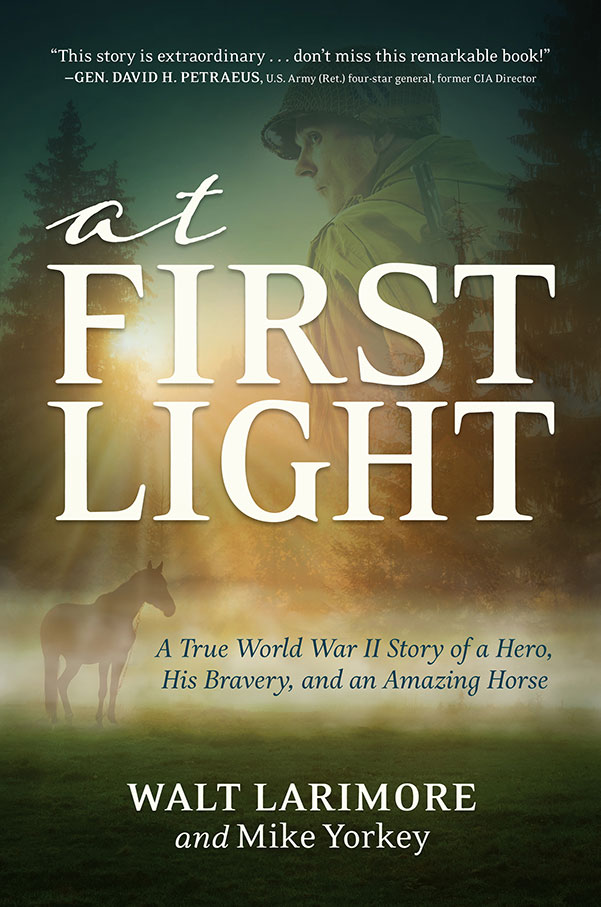
April 15, 1944 — Mules to the Rescue on Anzio
April 15, 2024
Praying with patients in clinical care (ICMDA Webinar – 1 of 5)
April 17, 2024War correspondent, Ernie Pyle, wrote, “You’ve heard how flat the land of the Anzio beachhead is. You’ve heard how strange and naked our soldiers feel with no rocks to take cover behind, no mountains to provide slopes for protection. This is a new kind of warfare for us. Here distances are short, and space is confined. The whole beachhead is the front line. The beachhead is so small that you can stand on high ground in the middle of it and see clear around the thing. That’s the truth, and it ain’t no picnic feeling either.[1]

Pyle continued:
I remember back in the days of desert fighting around Tebes more than a year ago, when the forward echelons of the corps staff and most of the hospitals were usually more than 80 miles back of the fighting. But here everybody is right in it together. You can drive from the rear to the front in less than half an hour, and often you’ll find the front quieter than the rear.[2]
Hospitals are not immune from shellfire and bombing. The unromantic finance officer, counting out his money in a requisitioned building is hardly more safe than the company commander ten miles ahead of him. And the table waiter in the rear echelon mess gets blown off his feet in a manner quite contrary to the Hoyle rules of warfare.
It’s true that the beachhead land is flat, but it does have some rise and fall to it. It’s flat in a western Indiana way, not in the billiard-table flatness of the country around Amarillo, Tex., for example.
You have to go halfway across the beachhead area from the sea before the other half of it comes into view. There are general rises of a few score feet, and little mounds and gulleys, and there are groves of trees to cut up the land.
There are a lot of little places where a few individuals can take cover from fire. The point is that the generalized flatness forbids whole armies taking cover.
Several main roads—quite good macadam roads—run in wagon-spoke fashion out through the beachhead area. A few smaller gravel roads branch off from them. In addition, our engineers have bulldozed miles of road across the fields. The longest of these “quickie” roads is named after the commanding general here, whose name is still withheld from publication. A painted sign at one end says “Blank Boulevard,” and everybody calls it that. It’s such a super-boulevard that you have to travel over it in super-low gear with mud above your hubcaps, but still you do travel.[3]
Space is at a premium on the beachhead. Never have I seen a war zone so crowded. Of course, men aren’t standing shoulder to shoulder, but I suppose the most indiscriminate shell dropped at any point in the beachhead would land not more than 200 yards from somebody. And the average shell finds thousands within hearing distance of its explosion. If a plane goes down in No-Man’s-Land, more than half the, troops on the beachhead can see it fall.
New units in the fighting, or old units wishing to change positions, have great difficulty in finding a place. The “already spoken for” sign covers practically all the land in the beachhead. The space problem is almost as bad as in Washington.
Because’ of the extreme susceptibility to shelling, our Army has moved underground. At Youks and Thelepte and Biskra, in Africa a year ago, our Air Forces lived underground. But this is the first time our entire ground force has had to burrow beneath the surface.
Around the outside perimeter line, where the infantry lie facing the Germans a few hundred yards away, the soldiers lie, in open foxholes devoid of all comfort. But everywhere bade, of that the men have dug underground and built themselves homes. Here on this beachhead the dugouts, housing from two to half, a dozen men each, will surely run into the tens of thousands.
As a result of this, our losses from shelling and bombing are small. It’s only the first shell after a lull 1 that gets many casualties. After the first one, all the men are in their dugouts. And you should see how fast they can get there when a shell whines.
In addition to safety, these dugouts provide two other comforts our troops have not always had—warmth and dryness.
A dugout is a wonderful place to sleep. In our Anzio-Nettuno sector a whole night’s sleep is as rare as January sun in sunny Italy. But for the last three nights I’ve slept in various dugouts at the front, and slept soundly. The last two nights I’ve slept in a grove which was both bombed and shelled, and in which men were killed each night, and yet I never even woke up. That’s what the combination of warmth, insulation against sound, and the sense of underground security can do for you.
The Anzio beachhead area is practically all farms. Much of it lies in the famous old Pontine marshes. I’ve looked these up in Baedeker,[4] and found that the Romans have been trying to drain them since 300 years before Christ.
Even Caesar took a shot at it, and so did many Popes. Mussolini was the last one to give the marshes a whirl, and as far as I can see he did a pretty good job of it.
On these little farms of the Pontine marshes Mussolini built hundreds of modern (in the Italian manner) stone farmhouses. They’re all exactly alike, except for color, and they stipple the countryside like dots on a polka dot dress.
Despite its flatness, the area is rather pretty. It doesn’t look like marshland. It is green now, and will be greener in a few weeks. Wheat is coming through the ground. There are rows of cedar trees throughout the area. Spots of uncultivated ground are covered with waist-high oak bushes, resembling our hazel nut bushes in the fall, crisp and brown-leafed.
Now and then you see a farmer plowing with German shells landing right in his field. We’ve tried to evacuate the people, and have evacuated thousands by boat. Daily you see our trucks moving down to the dock with loads of Italian civilians from the farms. But some of them simply won’t leave their homes.
Now and then the Germans will pick out one of the farmhouses, figuring we have a command post in it, I suppose, and shell it to extinction. Then, and then only, do the Italian families move out. One unit was telling me about a family they tried in vain for days to move. Finally a shell killed their tiny baby, just a few days old.
Here in the battle zone, as in other parts of Italy, our Army doctors are constantly turning midwife to deliver bambinos.
Farmers frequently do dry—cleaning with gasoline for our officers, and they say the job they do would pass inspection in any New York tailoring shop. Soldiers throughout the area get the remaining Italians to do their washing. Practically every inhabited farmhouse has a gigantic brown washing hanging in the backyard.
One outfit of tankers that I know sent all its spare clothes to one farmhouse to be washed. Shortly afterward the Germans picked out that house for the center of barrage. The Italians abandoned the place, and were unhurt. But next morning, when the soldiers went to see about their clothes, all they found was dozens of American shirts and pants and socks torn into shreds by shell fragments.[5]
In the fields there are small herds of cattle, sheep, horses and mules. Many of the cattle are slate-grey. Just like Brahma cattle. And they have wide, sweeping horns very much like the majestic headgear of the famous longhorn steers of Texas. Now and then you see an Army truck radiator decorated with a pair of these horns.
Most of the livestock can graze without human attention, but as an old farmer I’ve been worrying about the cows that have nobody to milk them when the farmers leave. As you may or may not know, a milk cow that isn’t milked eventually dies a painful death.
An officer friend of mine, who has been at the front almost since D-day, says he’s seen only one cow in trouble from not being milked, so I suppose somebody is milking them.
One unit I know of took the milking proposition into its own hands, and had fresh milk every day. Of course that’s, against Army regulations (on account of the danger of tubercular milk), but Army regulations have been known to be ignored in certain dire circumstances.[6]
Much of the live stock is being killed by German shellfire. On any side road you won’t drive five minutes without seeing the skeleton of a cow or a horse.
And of course some cows commit suicide. As the saying used to go in Tunisia, it was the damndest thing, but one cow stepped on a mine, a very odd mine indeed, for when it exploded it hit her right between the eyes. And here on the beachhead we’ve seen an occasional cow deliberately walk up and stick its head in front of a rifle just as it went off.
There isn’t as much of that, to my mind, as there should be. We’re fighting a horrible war that we didn’t ask for, on the land of the people who started it. Our supply problems are difficult. K-rations get pretty boring, and fresh meat is something out of Utopia.
[1] Ernie Pyle. With Fifth Army Beachhead Forces in Italy. (By Wireless). The Commercial Appeal, Memphis. News Clipping.
[2] Found this additional paragraph, apparently cut by the Memphis paper in The Ottawa Journal, page 2. http://www.newspapers.com/newspage/48423834/.
[3] Found this additional paragraph, apparently cut by the Memphis paper in The Ottawa Journal, page 2. http://www.newspapers.com/newspage/48423834/.
[4] Baedeker— Verlag Karl Baedeker, founded by Karl Baedeker on July 1, 1827, is a German publisher and pioneer in the business of worldwide travel guides. The guides, often referred to simply as “Baedekers” (a term sometimes used to refer to similar works from other publishers, or travel guides in general), contain, among other things, maps and introductions; information about routes and travel facilities; and descriptions of noteworthy buildings, sights, attractions and museums, written by specialists. http://en.wikipedia.org/wiki/Baedeker
[5] Found this additional paragraph, apparently cut by the Memphis paper in The Ottawa Journal, page 2. http://www.newspapers.com/newspage/48423834/.
[6] Found this additional paragraph, apparently cut by the Memphis paper in The Ottawa Journal, page 2. http://www.newspapers.com/newspage/48423834/.
In case you haven’t read or listened to Dad’s book, you can learn more or order it here.
© Copyright WLL, INC. 2024.



